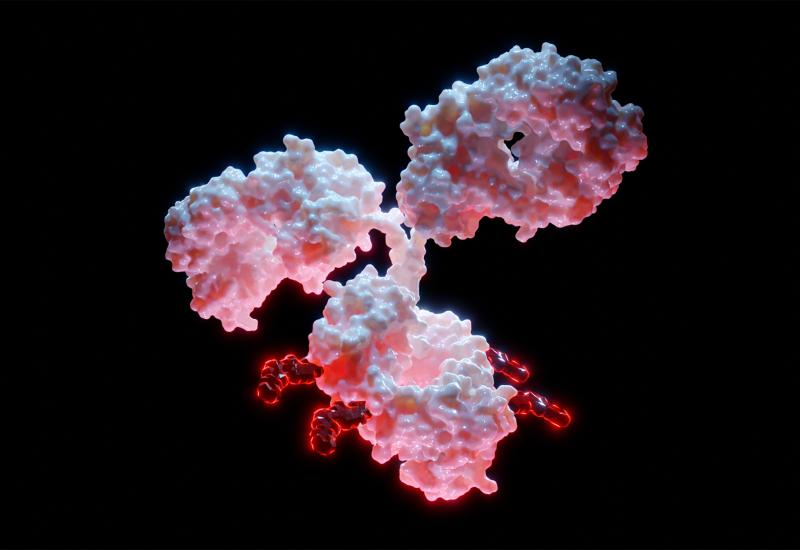
Xilio gets a Gilead-shaped reprieve
A $44m up-front for the tumour-activated IL-12 XTX301 will help keep Xilio going until 2025.
A $44m up-front for the tumour-activated IL-12 XTX301 will help keep Xilio going until 2025.

At the end of last year Xilio Therapeutics’ future looked uncertain, but today's deal with Gilead over a tumour-activated IL-12 project has given the micro-cap a new lease of life. Gilead is paying $43.5m up front in cash and stock for rights to XTX301; the deal, along with an $11.3m private placement and restructuring also announced today, will extend Xilio’s cash runway into 2025.
Now the companies will have to show that XTX301 can succeed where many other IL-12 contenders have failed. The project is designed to be activated in the tumour microenvironment, a feature that Xilio hopes will solve the problem other players have had in finding a therapeutic window for IL-12.
In January Xilio reported preliminary safety data from a phase 1 solid tumour trial of XTX301, showing no dose-limiting toxicities among nine patients receiving 5-45ug/kg once every three weeks. The company added that the highest dose was nearly 100 times the maximum tolerated dose of recombinant human IL-12.
Next up for XTX301 will be phase 1 safety, pharmacokinetic and pharmacodynamic data, due in the second half of the year.
Xilio is responsible for dose expansion in the current trial; after this Gilead can take the project on for a $75m transition fee. Overall, Gilead could be on the hook for another $604m, as well as tiered royalties.
This is a major turnaround for Xilio, which last November said it had enough cash to last only until mid-2024. It's notable that the value of Gilead's up-front fee is nearly three times higher that Xilio's $17m market cap at close yesterday.
IL-12 failures
Judging by the track record of IL-12 therapies, success for XTX301 is by no means assured. The field has seen various setback, including last year’s failure of Oncosec’s intratumoural IL-12 gene therapy tavokinogene telsaplasmid.
AstraZeneca has also abandoned various efforts here, including the Moderna-originated mRNA project MEDI1191, the gene therapy MEDI9253, and the so-called “cancer vaccine” INO-3112, which continues in the hands of its inventor, Inovio.
Bristol Myers Squibb also exited a partnership with Dragonfly Therapeutics last year, although the latter is still pressing on with DF6002.
As for Xilio, its focus is now on XTX301 and XTX101, a tumour-activated anti-CTLA4 project. The group had also been developing XTX202, a tumour-activated, beta-gamma biased IL-2, another cytokine that has had its ups and downs. However, today Xilio said that, after seeing no responses in a phase 2 trial, it was discontinuing monotherapy efforts and would look for a partner for combination development.
This, along with Cytomx’s recent tribulations, serves as a reminder that masking technology doesn’t always lead to a better therapy. Gilead hasn't broken the bank for its Xilio experiment, but given the dire straits the latter company had been in perhaps the big biotech could have driven a harder bargain.
The mid to late-stage IL-12 pipeline
| Project | Company | Description | Status |
|---|---|---|---|
| INO-3112* | Inovio | IL-12/HPV DNA-based immunotherapy | Ph3 + Loqtorzi planned in HPV16/18+ throat cancer |
| PDS01ADC | PDS Biotechnology | IL-12 fusion protein | Ph3 + PDS0101 + Keytruda planned in recurrent HPV+ head & neck cancer |
| IMNN-001 (formerly GEN-1) | Imunon (formerly Celsion) | IL-12 DNA-based immunotherapy | Ph1/2 Ovation 2 in neoadjuvant ovarian cancer; topline data due mid-2024 |
| SON-1010 | Sonnet BioTherapeutics | IL-12-FHAB | Ph1/2 + Tecentriq in platinum-resistant ovarian cancer; safety data due H1 2024 |
| DF6002** | Dragonfly Therapeutics | IL-12/Fc fusion protein | Ph1/2 +/- Opdivo in solid tumours; completes Jul 2024 |
| STX-001 | Strand Therapeutics | IL-12 self-replicating mRNA | Ph1/2 +/- Keytruda in solid tumours; completes May 2027 |
*AstraZeneca handed back rights Oct 2021; **Bristol handed back rights Feb 2023. Source: OncologyPipeline.
1370













